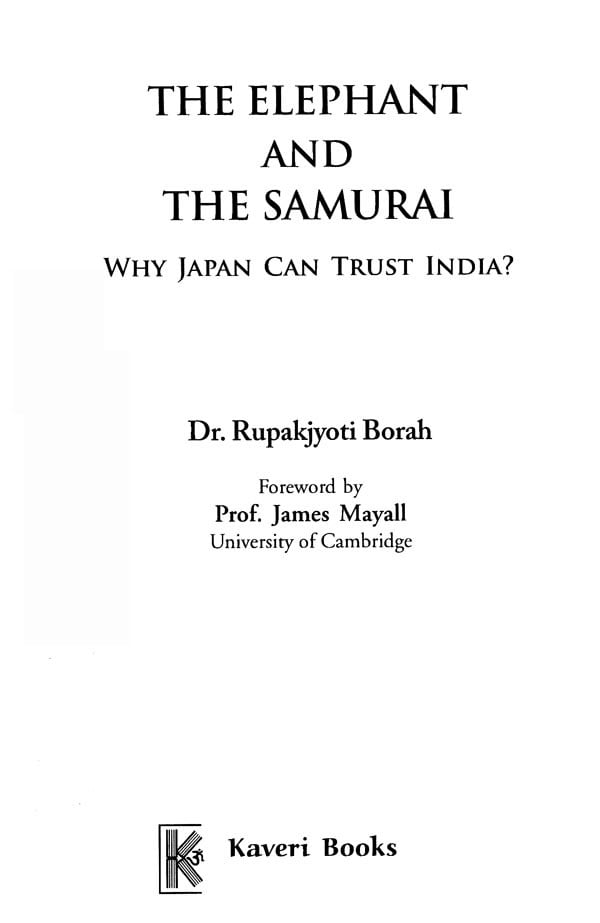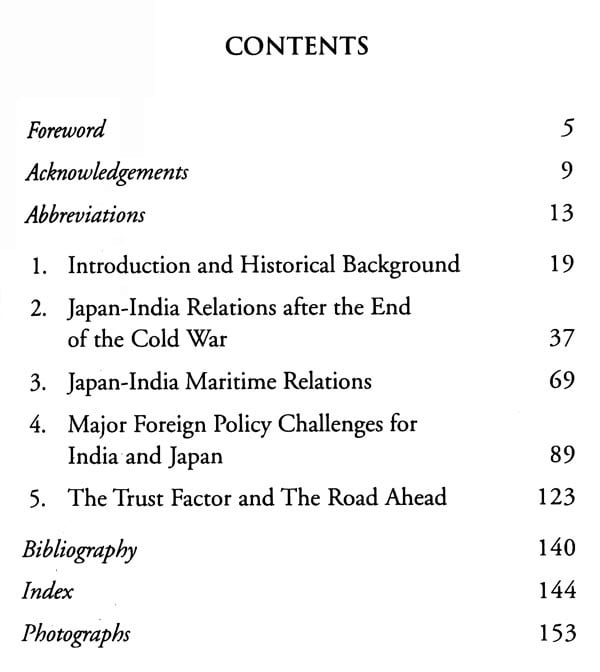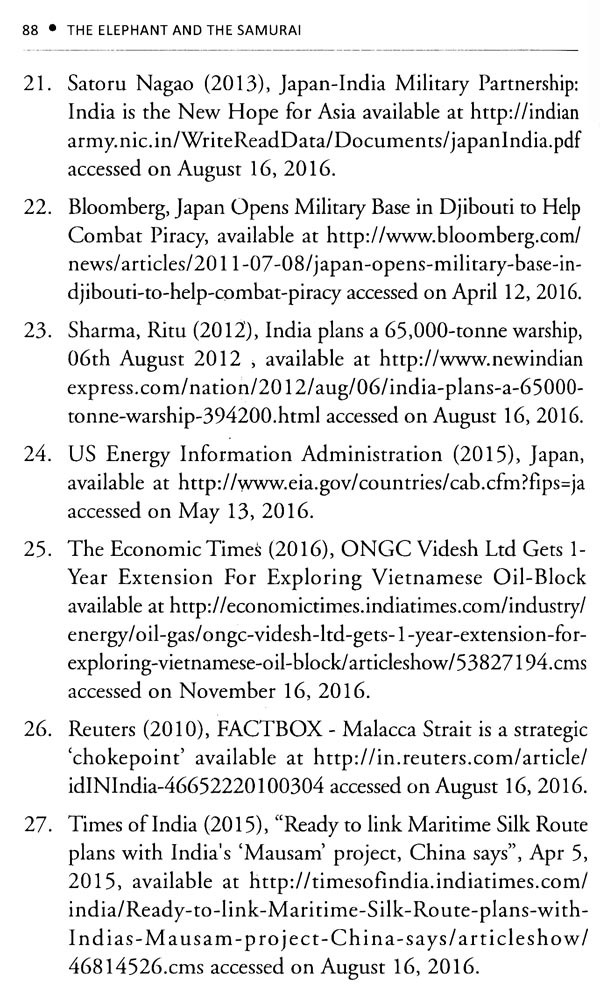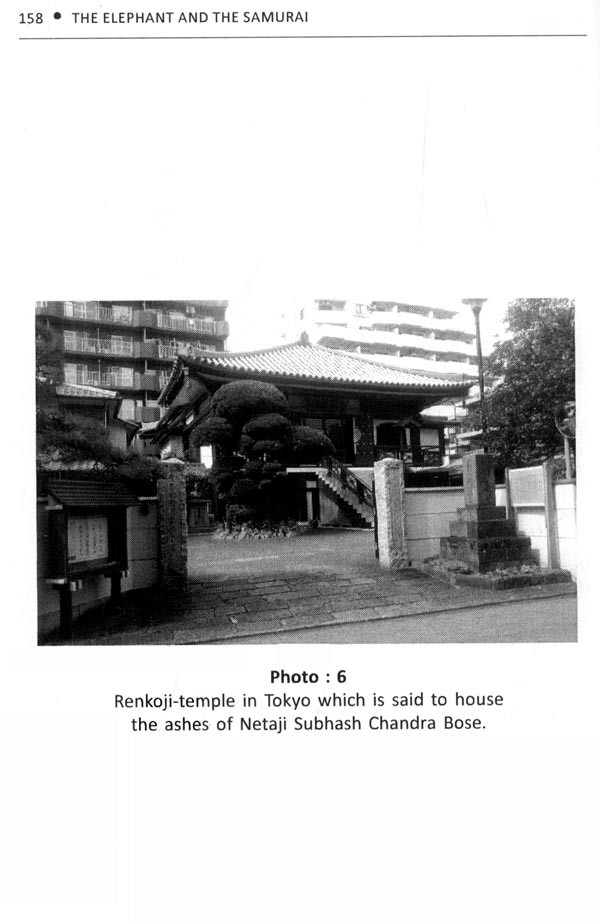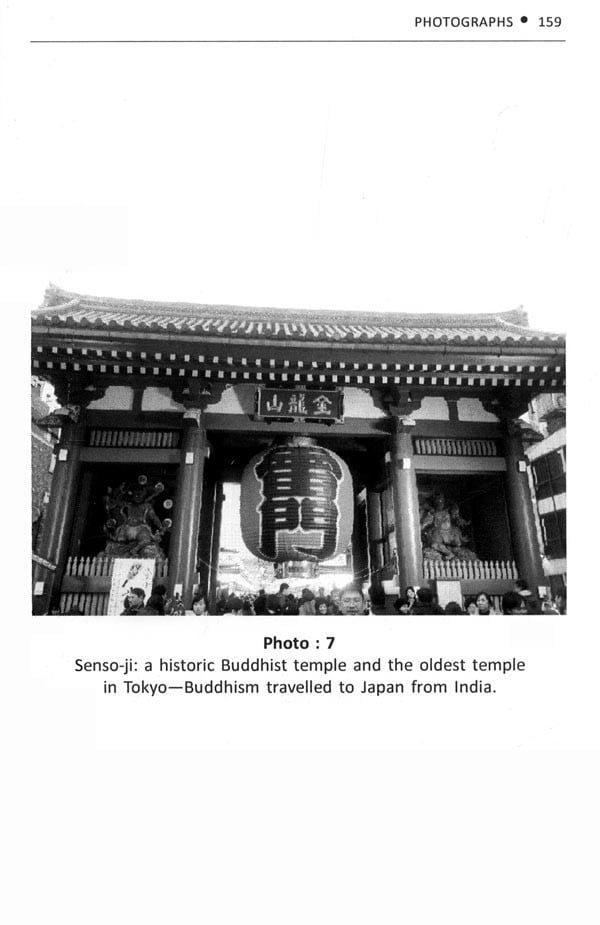About the Book This book seeks to analyze the ongoing in the region, as India, Japan and China-all seek to grow at the same Japan and India historical ties, but these have translated robust gains the economic modern times.
All this, however, seems to changing with the growing power and influence China and the relative decline in American dominance in the region. At same time, India, under PM Modi and Japan, Abe are actively seeking to establish themselves players, only Asia, but globally.
India and Japan are both energy-deficient nations have a interest ensuring that sea-lines of communication in the Indo-Pacific region open for all. This book elucidates India's usefulness for Japan in the maritime arena the Indian Navy the most powerful actor the Indian Ocean region, the exception the US. Meanwhile, India's growing closeness the US also helped bring New Delhi and Tokyo together. The central argument of this book that Japan trust India, in the maritime realm and beyond, as two countries have no conflict of strategic interests, rarity today's surcharged times in the Indo-Pacific setting.
About the Author Dr. Rupakjyoti Borah is presently a Research Fellow with the Tokyo-based Japan Forum for Strategic Studies (JFSS). He has earlier served as an Assistant Professor of International Relations at India's Pandit Deendayal Petroleum University and has held visiting appointments at the University of Cambridge (U.K), the Japan Institute of International Affairs (JIIA), Tokyo and the Australian National University (ANU), Australia. He was an invited speaker at the Jakarta International Defence Dialogue on "Building Maritime Collaboration for Security and Stability in March 2014. In Japan, he has delivered lectures in prestigious universities and institutions like Chuo University, Gakushuin University, Waseda University, the National Institute of Defence Studies (NIDS), Keio University, the International Christian University, Kyoto University, Osaka University, the University of Tokyo, the Japan Institute for National Fundamentals(JINF) besides at the Japan Institute of International Affairs (JIIA), Tokyo. Dr Borah holds a PhD from the School of International Studies, Jawaharlal Nehru University (JNU), New Delhi, India. He is also a two-time fellow of the Australia-India Council programme. He specialises on Japan India relations with a specific focus on Japan India maritime ties, besides strategic issues related to the Indo-Pacific region.
Foreword This is a book whose time has come. The seismic and often confusing shifts in the world's geopolitical landscape since the end of the Cold War have challenged many familiar assumptions about the nature of contemporary international society. Amongst these was the view that India and Japan - so different in material culture and ways of life while fundamentally well-disposed to one another, had few interests in common or reasons to engage in serious cooperation. After 1945, Japan rebuilt its devastated country on the secure foundation of its bilateral alliance with the United States. It insured itself against any repeat of its disastrous military past by adopting a new constitution, and most particularly by Article 9, which confined the Japanese military forces to a self-defence role. Throughout the Cold War, Japan acted as a financial underwriter of, but was never an active participant in, the western alliance. For most of the time, it was a spectacularly successful formula.
**Contents and Sample Pages**
